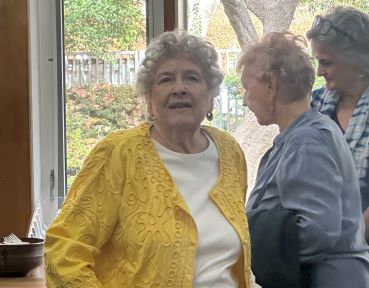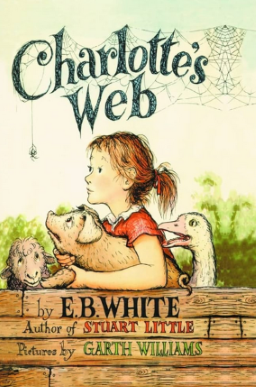A new Bethesda library spotlights targeted books.

In a November 17th blessing ceremony that featured a reading by Phyllis Reynolds Naylor (left), winner of the Newbery Medal for distinguished contributions to American literature for children, the Cedar Lane Unitarian Universalist Congregation in Bethesda, Maryland, launched its new library for “banned and challenged” books.
The library contains 95 volumes so far, all contributed by Cedar Lane parishioners, said library team leader Karl Debus-Lopez. Dayna Edwards, the church’s minister of faith formation, celebrated the new initiative as a response to “the bigotry and hate that oppresses us.” Senior Minister Abhi Janamanchi declared the library open for the curious, the questioning, and the courageous.
The American Library Association (ALA) has tracked a dramatic increase in objections to books in public and school libraries: Such challenges rose by 65 percent in 2023 alone. The challenges cluster around a few topics: sex, LGBTQ+ relationships, and race. In the last decade, the most-targeted books have included such widely read volumes as Harper Lee’s To Kill a Mockingbird, Toni Morrison’s The Bluest Eye, J.K. Rowling’s Harry Potter series, Margaret Atwood’s The Handmaid’s Tale, and John Steinbeck’s Of Mice and Men.
Naylor, the author of more than 140 published novels, received the Newbery Medal for her Shiloh quartet about an abused dog, which was made into a movie released in 1996. She told the group assembled in the church library that most challenges to her books concentrate on the 28 volumes of her Alice McKinley series, which follows a young girl from elementary school until age 65.
“There’s a lot of room for sex in those years,” Naylor noted with a smile. For the decade of 2010 to 2019, her books ranked 21st on the ALA’s list of the 100 most-challenged volumes.
